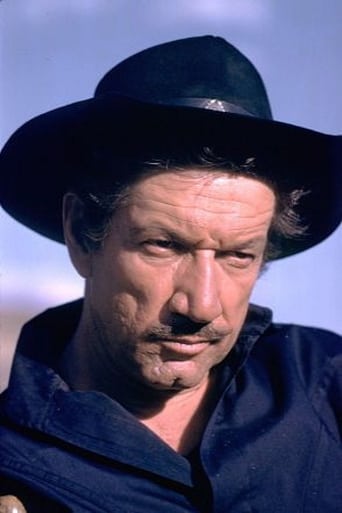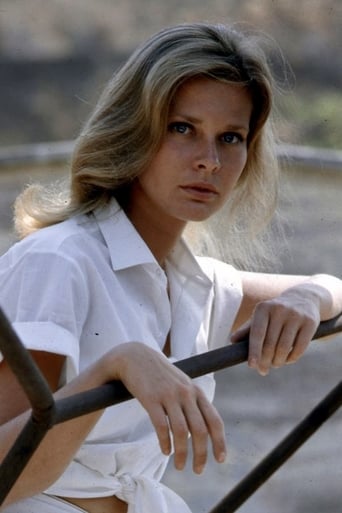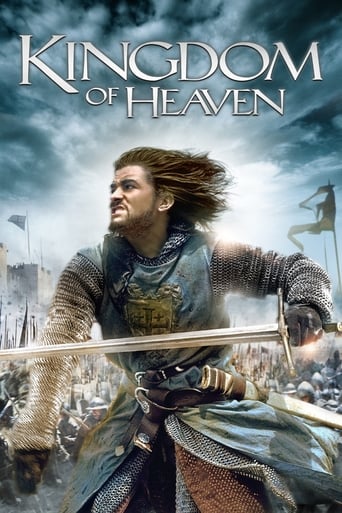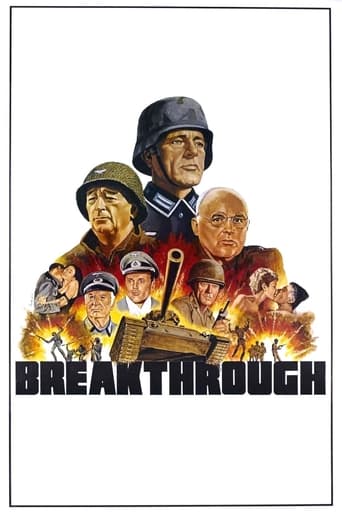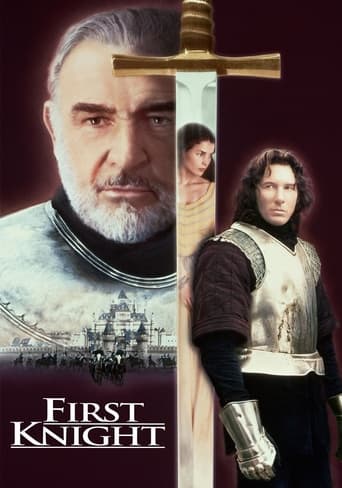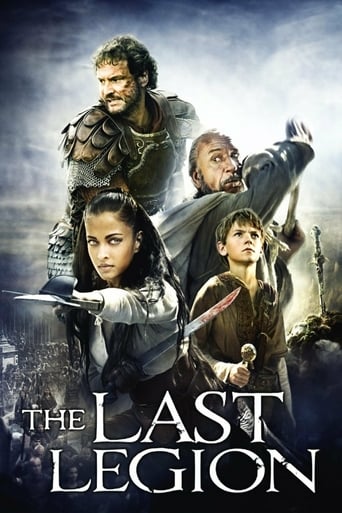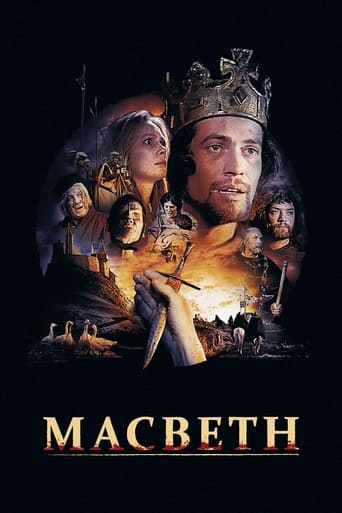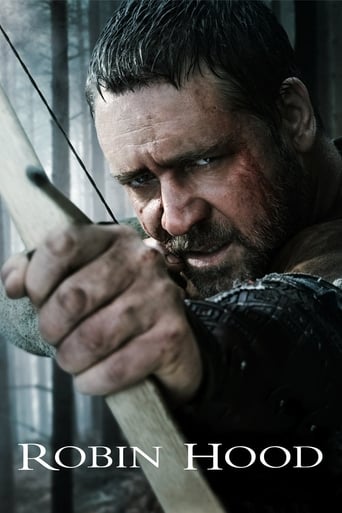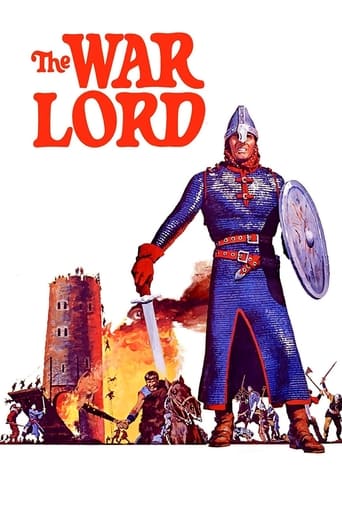
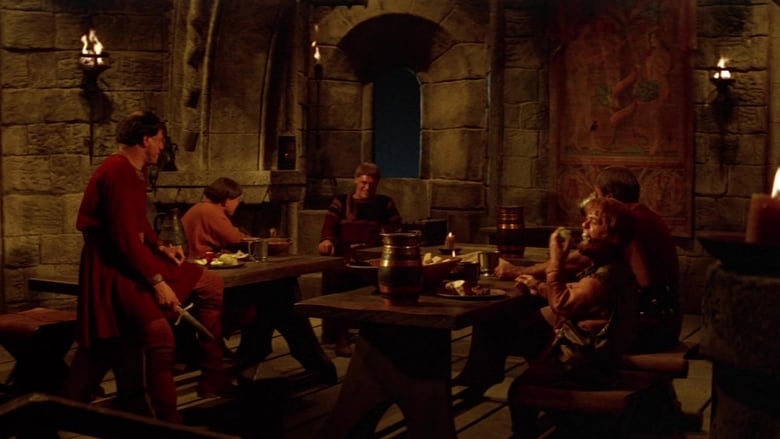
The War Lord (1965)
A knight in the service of a duke goes to a coastal village where an earlier attempt to build a defensive castle has failed. He begins to rebuild the duke's authority in the face of the barbarians at the border and is making progress until he falls in love with one of the local women.
Watch Trailer
Cast
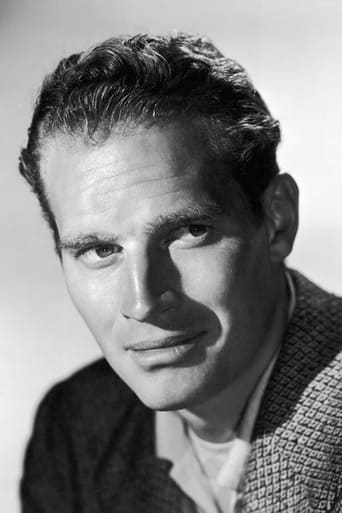
Similar titles
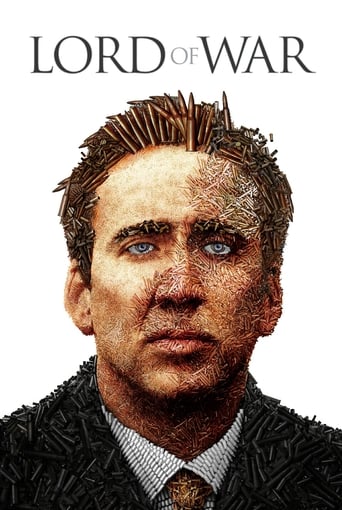
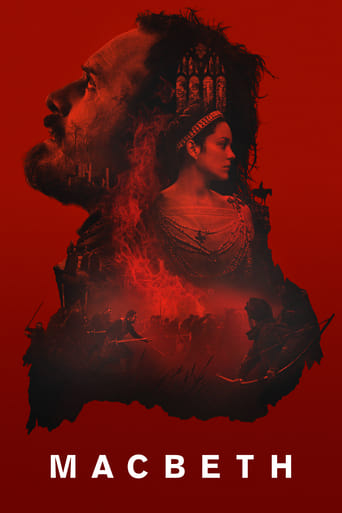
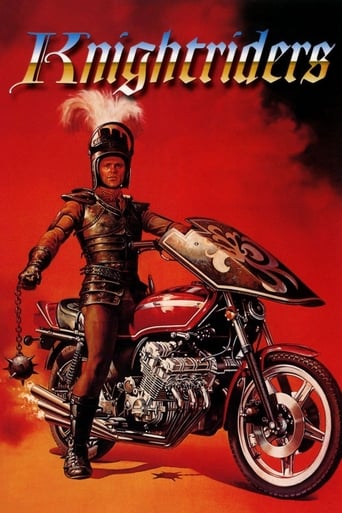
Reviews
In truth, there is barely enough story here to make a film.
When a movie has you begging for it to end not even half way through it's pure crap. We've all seen this movie and this characters millions of times, nothing new in it. Don't waste your time.
It's easily one of the freshest, sharpest and most enjoyable films of this year.
It is an exhilarating, distressing, funny and profound film, with one of the more memorable film scores in years,
I am a movie buff since my childhood and I have seen tons of films, of all kinds, although I avoid certain comedies...But besides that I am rather "open" to many kinds. So this feature is for me the best medieval films ever made, all countries confounded. I don't think that Russia for instance has made a medieval movie better than this one. And the British, french and other American films are not at the same scale as this one.Schaffner, Heston, Boone all are here at their best. Even score, sets, everything is here brilliant, awesome, poignant, terrific at the most. You have here a flawless movie that grabs you from the beginning to the end. And the peasant's character, whose the Young beautiful bride is stolen by the war lord - Heston- because the lord's right to take the bride on her wedding night, this character shown as the "evil" guy of the film is unforgettable. I LOVE ambivalent characters, for whom you hesitate between admiration or empathy and disgust. Like the Heston's character is. Unfortunately all audiences are not as sensitive as me concerning places the connections between characters. They like foreseeable schemes, the evil guy here and the good dude here...If you put these scheme out of the way, the audiences are lost. Those pricks....If you have not seen this film yet, you are Lucky, because discovering such a jewel will certainly be the best thing that could happen in your movie buff life.
It's rotten luck when someone takes the trouble to make a historical drama based intelligently on the best historical knowledge available to them, only for subsequent research to prove it completely wrong. This fate befell The War Lord, which hinges on the idea – a perfectly respectable academic theory in 1965 when it was made – that the "jus primae noctis" was a survival of pre-Christian fertility rites. A couple of years later a French historian thoroughly exploded the idea that the custom ever existed at all; this left the film looking like an obvious historical nonsense, and as it doesn't contain enough wall-to-wall action for the average "never-mind-the-sense-bring-on-the-swords-and-battle-axes" fan of historical epics, it's been all but forgotten. A pity, because there's really a lot in it to like.The hero is an 11th-century Norman knight, Chrysagon (Charlton Heston in a brutally unflattering Norman haircut), who after many years' service as a household knight has finally been given a fief of his own somewhere on the North Sea coast to defend against Frisian incursions for his master the Duke. (It's not clear which duke – of Normandy?) The action opens as Chrysagon arrives with his younger brother and small following of fighting men to claim his fief. They're pretty underwhelmed by it – it consists of swampy coastal forest, the castle is a grim dank primitive tower, and the paganism practised by the local peasantry unnerves them considerably. Still, a fief's a fief, and Chrysagon has fought a long time for this hike in status.One of the local customs entails brides being taken to the local lord for their wedding night – for luck, fertility etc. Chrysagon rejects this custom not out of virtue but because he recoils from this pagan carry-on, and anyway, a Norman lord should be able to ravish peasants for himself - he shouldn't have to wait till they're brought to him. However (and you all saw this coming, didn't you?) one day his hounds chase a beautiful local bride-to-be into a pond and Okay, the plot is a bit cheesy – but the whole thing is surprisingly realistic and medieval; you get the feeling that everyone concerned was genuinely trying to think themselves into the 11th century. Someone went to a lot of trouble working backwards from 19th-century European folklore and forwards from The Golden Bough to imagine how an 11th-century fertility rite might have been enacted – it's not their fault said rite never existed. The village really looks as though nothing very much has moved on there since the Migration Period, and the lord's tower is genuinely Romanesque. (Okay, it's more 12th than 11th century, and any stone tower at all would have been the last word in luxury and modernity back then – but that's nitpicking.) The Normans have the usual Hollywood knitted-string mail, but you can tell that the designer was looking hard at the Bayeux Tapestry. (And possibly even at the Norman-Sicilian clothes in the Imperial Treasury, judging by the side neck fastening on the Unreliable Younger Brother's tunic!) But it's not only the look of it that they tried to make medieval, but the way everybody thinks and behaves. Somebody thought through the questions "did 11th-century Norman fighting men believe pagan gods existed at all, and if so what did they think they were?" and "how might Norman knights and priests have squared with their consciences participating in pagan customs?". Chrysagon is not only good but (according to his younger brother) tediously righteous; but everybody, including him, assumes that he can and will shag on the spot any peasant who takes his fancy. (It's only a superstitious fright that stops him.) He has power of life and death over the peasants, and takes for granted that they are inferior, yet he also accepts that local law and custom have some weight which he can't simply brush aside. It's going to be a hundred years before anybody invents courtly love, so all the Normans – including Chrysagon himself – take for granted that any feeling for a peasant girl deeper than crude lust is as at best an unmanly weakness, at worst madness or bewitchment. His men are all loyal followers of many years' service, but as they see their lord starting to go mushy over some slut and endanger them all by provoking a peasant revolt on her account, their loyalty starts to crumble. His younger brother, who was more-or-less content to play second fiddle to him when they were both household knights, finds himself resenting the gap in status that has opened up between them now he is his brother's vassal. All this has credibility.It's far from perfect. Perhaps it really was necessary to label the peasants' religion as "Druidism" in order to convey the notion of pre-Christian paganism to the average viewer - but did they really have to call the heroine "Bronwyn"? (A friend of mine was misled by this into assuming the action was set in Brittany – she couldn't otherwise account for "Druids" and Celtic names!) And she is the one real embarrassment of the film. Her character is written as hopelessly sweet, feeble and drippy – no detectable personality - and Rosemary Forsythe doesn't look or sound like any kind of peasant from any place or time in history. Even so, The War Lord is one of the most medieval films I've ever seen, and is definitely worth watching if you can find it.
Charlton Heston was never one of my favourite actors: He lacked humour of any description which meant that he lacked an essential quality necessary for the creation of a fully-rounded character. The kind of role he plays here - that of a soldier awarded lands and the people who dwell on them in payment for his military services to a duke - is ideally suited to his dour and colourless persona, but the film's verbosity gives away its stage origins and makes for very dull fare.Heston's lord of the manor takes a shine to a local peasant girl on the eve of her wedding and decides to take advantage of the local custom that entitles him to have her warm his bed on her wedding night. Naturally, the girl's new husband isn't too thrilled about this - and is positively apoplectic when Heston then refuses to give her back. A pitched battle between the lord and his subjects follows.The trouble with this film is that it asks us to identify and sympathise with a basically unlikeable character. He gives no thought to the people and lives he is destroying by deciding to keep the girl for himself, irrespective of the fact that his feelings for her are reciprocated. Nor does he give any regard for the lives of the faceless soldiers who defend him when his castle is besieged by the understandably outraged locals. No lasting love is born from a one-night stand between a young married woman and a middle-aged single man between whom barely two conversations have taken place and so the audience sympathy is more closely allied to the peasants than the lord. Presumably, a kind of Romeo and Juliet scenario is supposed to be alluded too, but this dull effort falls far short of any Shakespearean aspirations it might have.
A long serving Knight named Chrysagon (Charlton Heston) is sent by his Duke to safeguard a dismal coastal outpost of swamps and fens from a lone tower. Here he finds himself troubled by the Frisian raiders, his non-Christian nature worshiping subjects and his own growing desire for a peasant girl named Bronwyn (Rosemary Forsyth).Heston has some good scenes, but his character's seemingly irrational behavior and extreme mood swings seem somewhat forced and artificial. More impressive in their portrayals are both Maurice Evans as the local priest and Guy Stockwell as Draco, Chrysagon's sly younger brother. Rounding out the cast we have Richard Boone as Bors, Chrysagon's loyal right hand man. While the part may not be perfectly suited to Boone his imposing physical presence is quite effective in this role.The film has some reasonably good action sequences (at least for the era in which it was made), some intrigue, some romance and considerable drama, but the problem seems to be that the film makers couldn't decide what kind of story they were trying to tell. In particular the romantic aspect of the film is definitely undersold. While Bronwyn is obviously smitten by the Chrysagon, other than physical attraction we don't really know why she is drawn to him, perhaps because she is given so few lines of dialog. Also given very limited time is the local mysticism and how it balances with the priests Christianity.Director Franklin J. Shaffner (Patton) while not succeeding here would reunite four years later with both Charlton Heston and Maurice Evans for a much more successful film Planet of the Apes.While not as realistic as todays films, this movie took a big step in depicting the feudal lifestyle in a more gritty and realistic fashion. This included the beliefs and attitudes of both the peasants and the lords.The first time Heston appears on screen with his pageboy haircut it's somewhat difficult not to laugh out loud.
